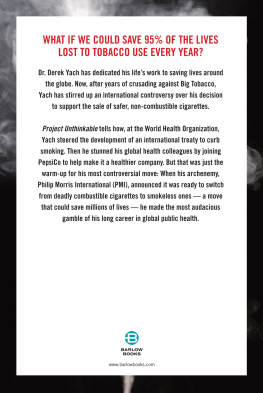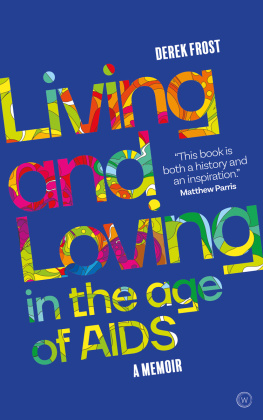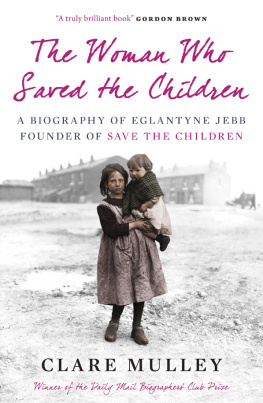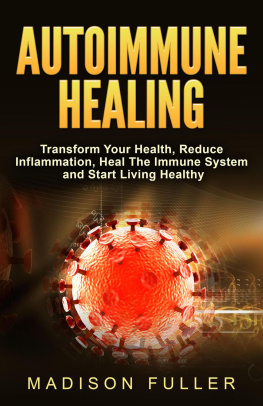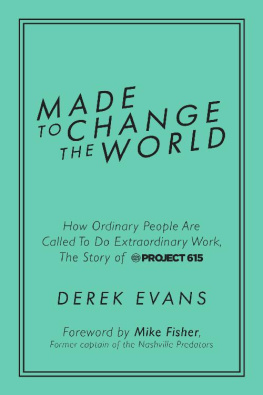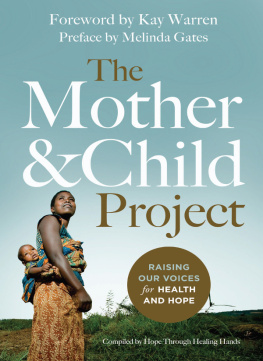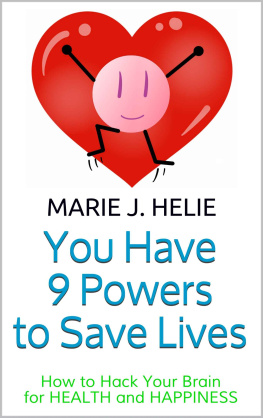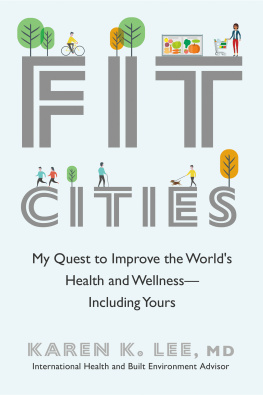Writing this book has allowed me to revisit and explore the momentous forces that have shaped who I am today. Three come immediately to mind: growing up in apartheid South Africa, the historic 1978 Alma-Ata conference that identified primary health care as the key to attaining Health for All, and the lawsuits against the U.S. tobacco industry in the 1990s that brought to light its shady tactics and shameless lies.
But even more forceful are the people Ive encountered over the yearspeople who have played key roles in shaping my ideas and helped me to make sometimes unexpected life decisions. They are family members, close friends, academic mentors who somehow seemed to know me better than I knew myself, and professional colleagues who have both supported me and called me out when they thought I was wrong. If only I could name you all!
Of course, I do need to highlight some names. My wife and life partner, Yasmin von Schirnding, has been with me for over 40 years, my biggest cheerleader and most incisive critic. No matter if its a conversation about health issues, scientific advances, or career direction, it is you I want to speak to first thing in the morning and last thing at night.
Others I must mention: Marian Jacobs, Hannes Botha, Debbie Bradshaw, Gro Harlem Brundtland, Indra Nooyi, Adrian Gore, and the late George Comstock. All of you played powerful roles in shaping what positions I would have, where I would focus my energies, and what really mattered in the pursuit of health for all.
Throughout my career, Ive been lucky to work with brilliant young people who have constantly challenged the status quo, suggested areas of research I had never considered, and helped pave the way for me to refresh old ideas and explore new possibilities. Heather Wipfli, Gillian Christie, Elle Alexander are three of the most exceptional minds in this exceptional group.
Finally, I have learned that it is easy to think about a book and even map out its content in depth, but it takes a lot more discipline, writing ability, and attention to detail to actually get it done. For that, I am so grateful to Lisa Fitterman for helping turn ideas and long stories into tight, compelling chapters that follow my lifes arc, and to Sarah Scott, my publisher, for holding my hand throughout a long period of gestation and work. All errors are, of course, mine!
On a sunny weekend in September 2017, just before the public learned of my full-time move to the Foundation for a Smoke-Free World, I sat in my study in Southport, writing a two-thousand-word essay on why I was doing so for The Lancet, one of the worlds oldest and best-known medical journals. I have known its editor-in-chief, Richard Horton, for over twenty years, and there is no medical journalist I respect more. He is one of the stalwarts when it comes to being cautious about tobacco company claims, but he is also willing to listen to other points of view.
I had arranged a phone call with him the week before to break the news. My only regret is that I couldnt see the expression of shockand perhaps horroron his face.
Oh my God, he said from his office in London. Oh my God. Oh my God.
He was concerned for me, to say the least. But he also had the presence of mind to know he had trusted my judgment in the public health arena in the past, so he wanted to hear more about my vision for the future. He asked me to write a piece to describe what the foundation could do, address the issue of the independence, and talk about what has happened in the past as a way of responding to the criticism that would inevitably fall upon my head.
How could I distill history into two thousand words? My history? The scholarly papers and letters Ive written for The Lancet itself go back a quarter century, in effect following my trajectory through successive jobs and responsibilities. The first was a paper in 1993 about South Africas health service. In 2003, I wrote a letter taking issue with a paper that contained suggestions that the proposed draft text for WHOs Framework Convention on Tobacco Control was feeble and meaningless.
There are some misconceptions about what a framework convention is and what makes it effective, I wrote. A framework convention is what the name signifies: a framework. Within this framework, protocols will be negotiated on specific subjects, with detailed, binding provisions on all important issues set out.
With regard to issues such as advertising, promotion, and sponsorship of tobacco products, I stated that the language in the draft text makes it clear that the ultimate objective is a
Years later, when I was at Vitality, I wrote a paper that was published in January 2014a retrospective piece on the treaty by one who had been in the thick of things. I noted then that the treatys many references to tobacco product design and regulation failed to anticipate alternative nicotine-delivery products that did not contain tobacco even though, in the view of many experts, the products have the potential to disrupt many traditional aspects of tobacco control. Such developments meant that WHO should revisit its policies on nicotine versus tobacco, I said, invoking a comment Brundtland made more than ten years earlier.
Despite our concerns about these clear differences in position, we are committed to hearing how the tobacco companies do propose to reduce the harm that their products cause, she said during public hearings for the treaty in 2000. Our Scientific Advisory Committee is charged with proposing appropriate national and international tobacco product
And now, on this sunny weekend, here I was, not a tobacco company scientist, to be surebut one who was trying to bridge the gap between the two sides.
Because I believe in the science.
Because I believe that with the right kind of leadership, companies can change.
Because saving lives is paramount.
I began to write. I believe this is the time to raise our ambition for what is possible and desirable in tobacco control.
And: What drives me to action and to accept this challenge is the massive, unprecedented potential to join a global effort to accelerate the decline in tobacco deaths and to prove wrong those who still project a billion smoking-related deaths this century.
There have been some heartening developments. In October 2017, I spoke in Washington, DC, at the annual conference of the Food and Drug Law Institute. I was fortunate that my speech followed that of Mitch Zeller, director of the FDAs Center for Tobacco Products. I consider him a true intellectual leader in the world of tobacco control, with a mind open to tackling a long-term, deadly problem. He focused on the challenges of reducing the risks associated with smoking, helping smokers to quit, and ensuring that kids arent able to start.
You all have an equal shot to take part in rule making, he said.
I agreed, telling the audience that I assume all refers to anyone with a material interest and with knowledge and insights to contribute to tobacco control. This includes academics, scientists from the industries working on ways to reduce risk and improve cessation, lead government regulators, NGOs, users of tobacco and related productsand the Foundation for a Smoke-Free World. And what we need to recognize is the major shift going on right now in how we tackle the problem of smoking: from attempting to eradicate it altogether toward focusing more on regulation of nicotine and how it is delivered.
I said we all share a common goal in accelerating the end of smoking among the one billion smokers in the world, and that the foundation is part of a new movement that is disrupting the status quo. And it is only to be expected that people get upset every time such a disruption occurslike the Luddites of the nineteenth century, and those who protest genetically modified crops or driverless cars. Invariably, the first response involves fear and urgent calls for censure or an outright ban. Yet, even as these calls are made, the early acolytes of these new movements are able to find benefits and organize others to benefit, too. Remember when former US president Ronald Reagan assured doubters about his decision to meet with former Soviet president Mikhail Gorbachev about ending the Cold War? He said, We trust, but verify.
Next page
